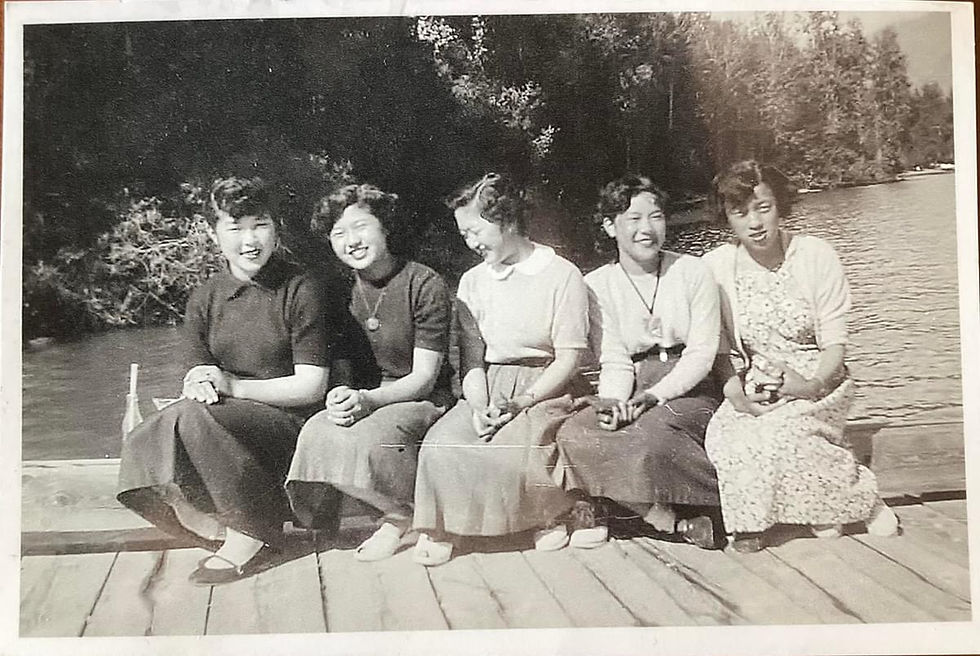PASSING OF MY FATHER - FIRST FUNERAL IN SLOCAN
- HARUYE

- Dec 12, 2024
- 2 min read

When we were in internment camps we were not allowed to leave the confides. I do know the men who were working on road camps near Hope/Princeton may have had a day off to visit with permission , their parents in the camps in the Slocan valley. There was only one policeman in Slocan, he typically did not patrol the city, he was largely indoors writing reports. That said, the Japanese Canadians were really law abiding individuals and created no havoc. Police were not out on the streets, patrolling, not like the movies. No one was put in jail for misdemeanours. I don't even think there was a jail. If there were protesting individuals they were sent to the camp in Ontario, if someone from the internment camps wanted to leave there was no train nearby, there may have been Greyhound buses that would come by perhaps daily
Fishing was prohibited. There were no places to fish around Slocan except the lakes and if you were caught you risked being jailed or fined so people went fishing at night or early morning using their homemade rod and hooks. My dad loved sports so he loved going out to fish.
My dad and a friend decided to go out of look for a place to go fish, and hide from the police. That day in October, 1943, my father died in an unspeakable fishing accident. The leader of the community assembled the everyone from the entire Bay Farm, Slocan and Popoff communities and organized search teams of 16 - 40 yrs old healthy Japanese Canadian men and went on a search of him. Dad and his partner, Mr. Mori, sadly got separated in the darkness. Mr. Mori made it out at 0500, the next morning. My mother sat on her knees on a zabuton in the middle of the kitchen floor waiting all night , waiting, waiting and waiting. The next day, the team eventually found dad’s lifeless body, lying in the cold waters of a running creek Mother was told he suffered a broken neck, likely from an unwitnessed fall. Mother was inconsolable!



Comments